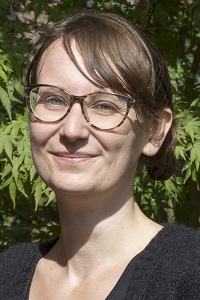Lily Garnett

Areas of interest
- Palaeopathology
- Bioarchaeology
- Museum Collections
Research projects
Blood lines: a social, palaeopathological and biomolecular examination of the impact of thalassaemia in Romano-British Poundbury Camp, Dorset
Poundbury Camp cemetery in Dorset represents the largest collection of individuals living and dying under Roman rule excavated in the UK, with c.1200 individuals cared for in the collection at the Natural History Museum. This project will focus on the reanalysis of over 650 adult individuals from the site. It aims to explore long term issues of health, migration and power over resources in an invaded population. In addition, this innovative project will be the first to apply ancient DNA (aDNA) analysis to explore the evolution of thalassaemia in Britain, at a time when it is believed to have first arrived on these shores.
This project is a collaboration between the University of Reading and the Natural History Museum, London.
Supervisors:
Professor Mary Lewis (University of Reading)
Dr Selina Brace (Natural History Museum)
Dr Rachel Ives (Natural History Museum)
Professor Hella Eckardt (University of Reading)